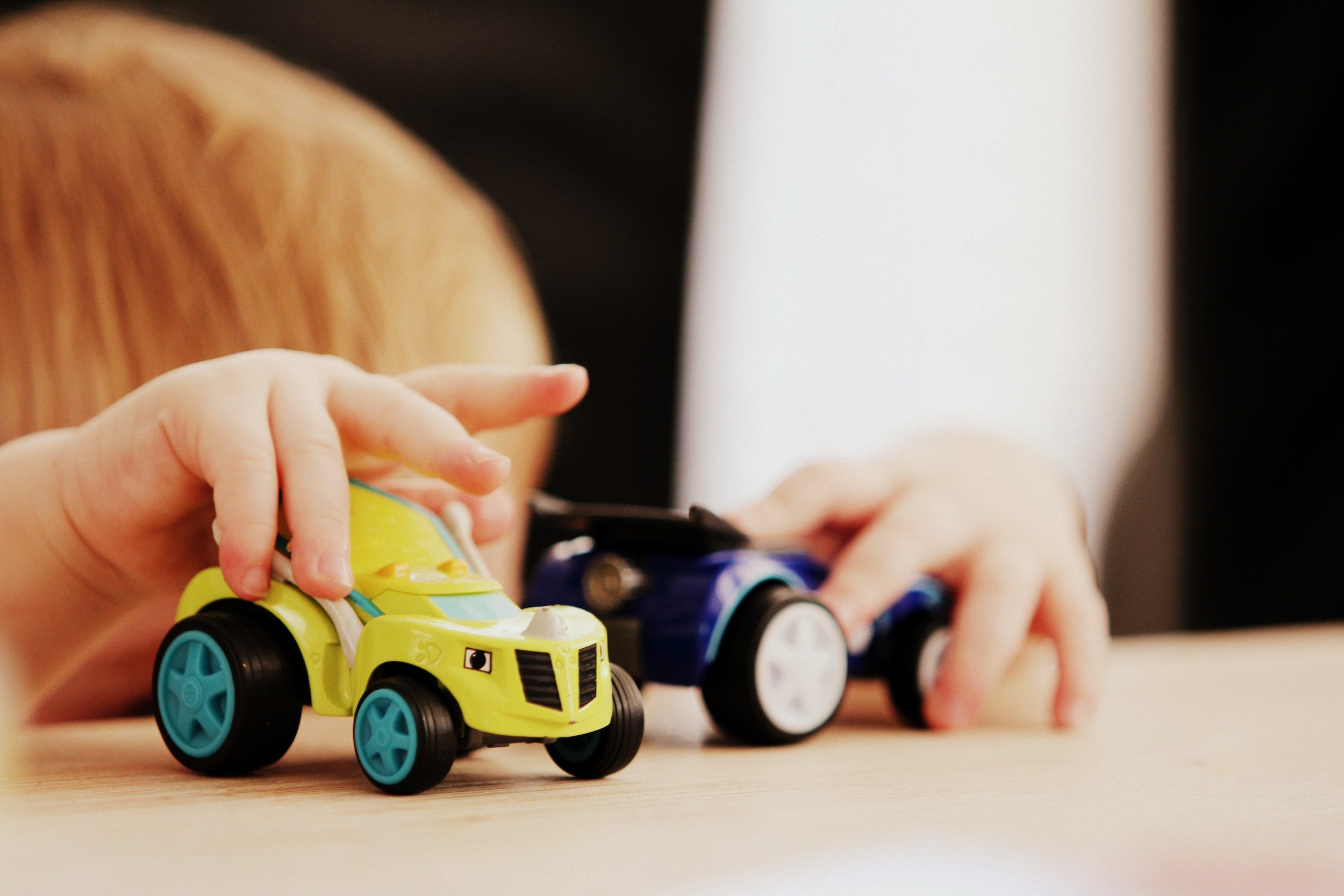
Purposeful Play
For kids, play is a big deal! It’s not anything to mess around with. Play is something to be taken seriously.
Six Stages of Play
Unoccupied Play
0-3 months
Babies move their arms and legs with no purpose. They are learning to move and it is the beginning of play.
Babies are observing their world.
Solitary Play
0-2 years
Children often play alone and appear to be uninterested in what others are doing.
This is important because it teaches children how to entertain themselves.
Onlooker Play
2 years
Children observe others play but do not join the play. They will often use language to find out more about the play.
This is a common form of play at 2 years but can take place at any time.
Parallel Play
2-3 years
Children play next to each other but with very little involvement with each other. They may have similar toys and copy each other.
Social skills are being learnt by observation.
Associative Play
2-3 years
Children are more interested in playing with others than with toys.
They may talk and engage with one another.
They may trade toys.
There are no rules.
This kind of play develops problem solving/cooperation.
Cooperative Play
4-6 years
Children are interested in both the people and the activity.
Groups are more formalized with a leader.
Children may be assigned different roles.
The play is organized around specific tasks and to accomplish goals developed by the group.
This kind of play brings together skills from all other stages.
Necessary for social and group interaction.
After 6, most play is divided in male/female groups.
Purposeful play is valuable and missional.

Valuable play is play that is made to be played more than once. Valuable play is age appropriate, interactive, and safe.
Examples of valuable play for infants include rattles, soft blocks, and shape sorters.
For toddlers, these might include balls, stuffed animals, play dough, and puzzles.
For preschoolers, this could include wooden blocks, pretend play centers, plastic animals, cars, and dolls.
Purposeful play is missional play. If play is meant to teach skills, then let’s use it to teach kids the skills that are aligned with the mission of why we do kids ministry in the first place.
Here’s a few ways that missional play might look:
Play that teaches the Scripture.
Play that teaches the big idea.
Play that teaches Godly social and emotional skills.
Let’s play this out.
Adam and Eve (Genesis 1-3)
What’s some valuable play we could have for infants, toddlers, and preschoolers?
https://pin.it/7w4lIpe
Jesus Calms the Storm
What’s some valuable play we could have for infants, toddlers, and preschoolers?
https://pin.it/3FHlrII


